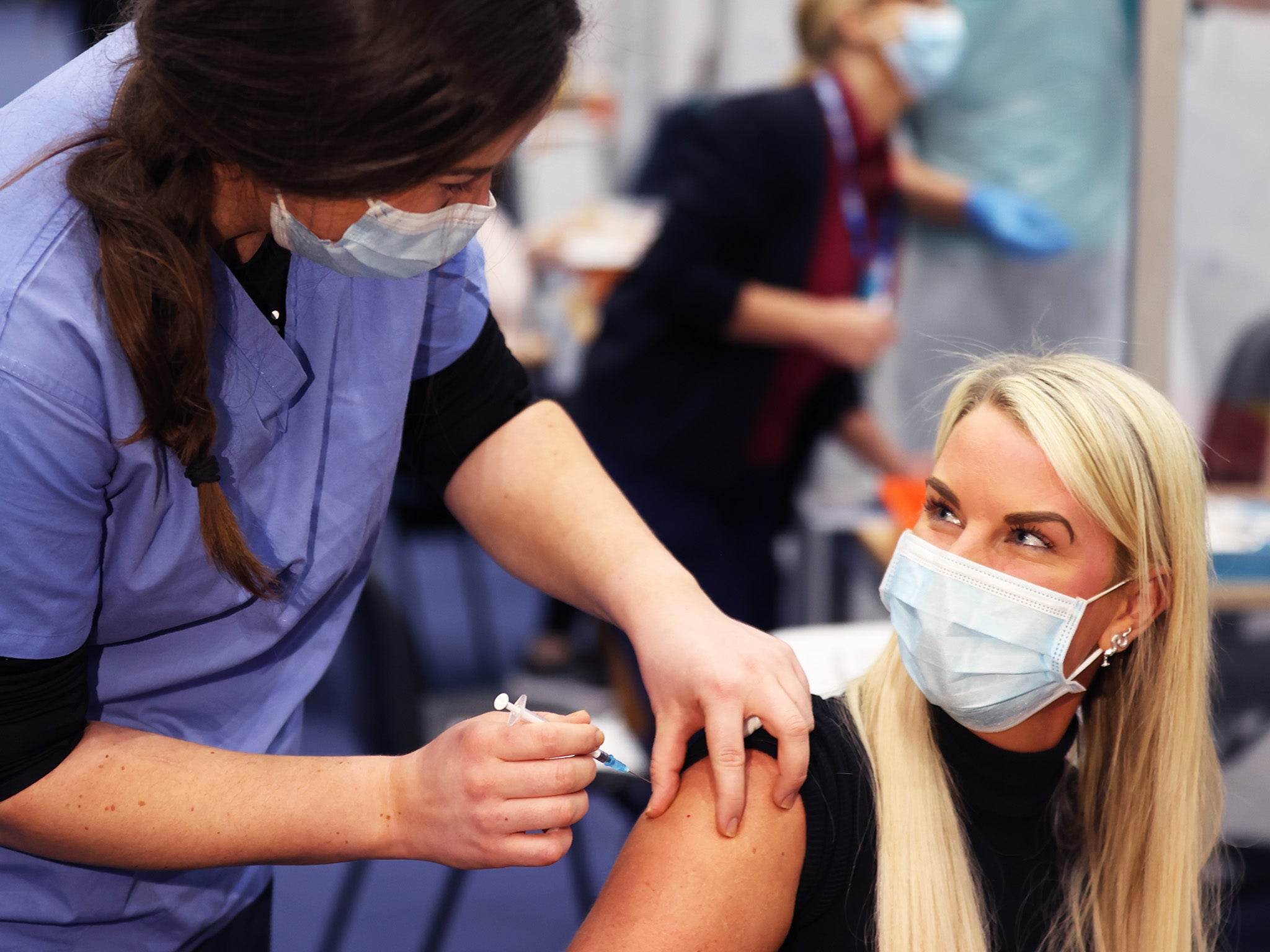Covid vaccines can lengthen time between women’s periods, study finds
Scientists say findings ‘incredibly reassuring’ as change was only small and temporary

Your support helps us to tell the story
From reproductive rights to climate change to Big Tech, The Independent is on the ground when the story is developing. Whether it's investigating the financials of Elon Musk's pro-Trump PAC or producing our latest documentary, 'The A Word', which shines a light on the American women fighting for reproductive rights, we know how important it is to parse out the facts from the messaging.
At such a critical moment in US history, we need reporters on the ground. Your donation allows us to keep sending journalists to speak to both sides of the story.
The Independent is trusted by Americans across the entire political spectrum. And unlike many other quality news outlets, we choose not to lock Americans out of our reporting and analysis with paywalls. We believe quality journalism should be available to everyone, paid for by those who can afford it.
Your support makes all the difference.Covid vaccination can add an extra day to a woman’s menstrual cycle, according to a study.
The increase was found to be in the time between menstrual bleeding, not the bleeding itself.
The study, funded by the National Institutes of Health (NIH), is one of the first to look at the effect of vaccination on periods.
Scientists tracked nearly 4,000 US women through six menstrual cycles and, on average, the period after a jab started about a day later than usual.
Results varied depending on which dose they had received. The first dose saw an average 0.71-day cycle increase in cycle length and the second dose an average 0.91-day increase.
Dr Alison Edelman, a researcher at Oregon Health and Science University who led the study, said the results were “incredibly reassuring” as the change was only small and temporary.
She said further research would be needed to determine whether vaccines can influence other aspects of menstruation like pain, mood changes, and the heaviness of flow.
Some women have reported irregular periods or other menstrual changes after their receiving a jab. The NIH is funding studies to examine if is a link.
Scientists analysed data from a fertility tracking app called Natural Cycles. Users are required to input data on their temperature and menstrual cycles and can consent to the use of their de-identified data for research.
Vaccinated women were tracked for three cycles before getting a jab and three cycles after. Their results were compared to unvaccinated women whose data was also collected for six cycles.
The study, published on Wednesday in the journal Obstetrics & Gynecology also looked at 358 women who got both vaccine doses in the same menstrual cycle. These women saw a slightly larger change to their next cycle length, on average two days.
But around 10 per cent of them had a change of eight days or more. All subsequently returned to normal ranges.
Dr Diana Bianchi, director of the NIH’s Eunice Kennedy Shriver National Institute of Child Health and Human Development, said: “These results provide, for the first time, an opportunity to counsel women about what to expect from Covid-19 vaccination so they can plan accordingly.”
Agencies contributed to this report